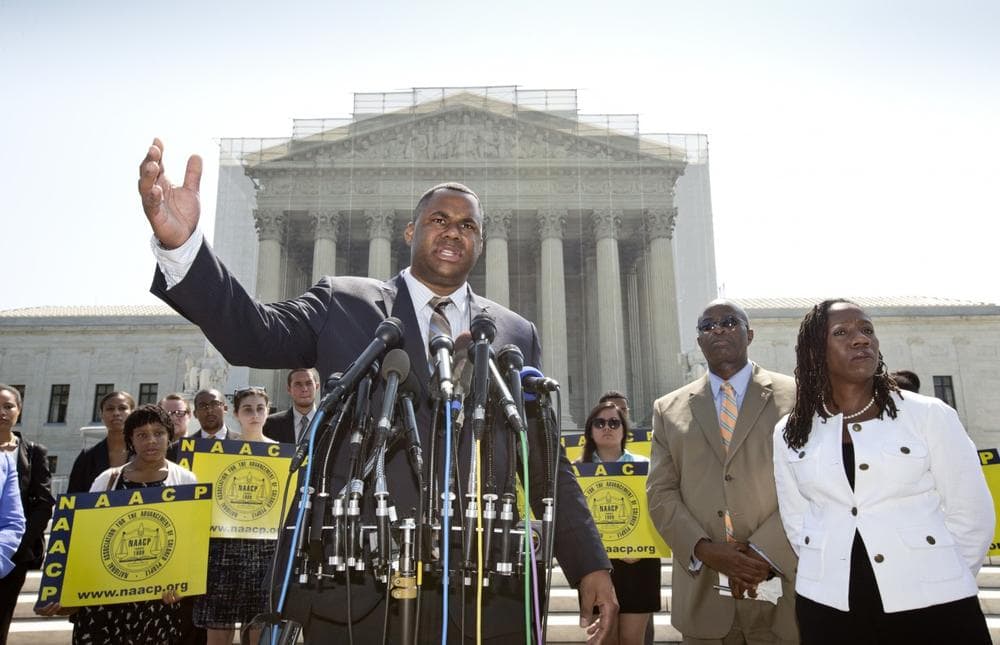Advertisement
Supreme Court Strikes Down Voting Rights Act Provisions
Resume
In a 5-4 decision, the justices invalidated a key section of the Voting Rights Act, effectively striking down federal oversight of voting laws in nine states.
Guests
Lani Guinier, Bennett Boskey Professor of Law, Harvard Law School.
More
New York Times "Chief Justice Roberts said that Congress remained free to try to impose federal oversight on states where voting rights were at risk, but must do so based on contemporary data. When the law was last renewed, in 2006, Congress relied on data from decades before. The chances that the current Congress could reach agreement on where federal oversight is required are small, most analysts say."
This segment aired on June 25, 2013.